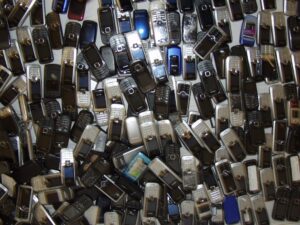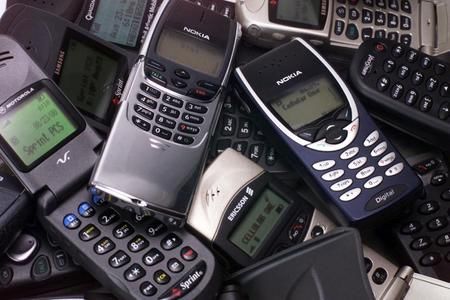 This recent editorial on contraband cell phones from the LA Times advocates making the penalties for smuggling cell phones into prisons harsher. And perhaps tougher penalties for those guards and prison staff who are caught smuggling prison cell phones would act as deterrence for some. But with over 10,000 cell phones confiscated in California jails last year alone, it is unlikely a new law will significantly stem the tide of smuggled wireless phones into prisons. A new approach, one that reduces the contraband value of smuggled cell phones, is needed. By offering a secure cell phone service to prisoners, the legitimate use of these illegal phones, calls to friends and family, will be siphoned off. This will reduce the number of cell phones smuggled as well as the amount paid for them. The key to reducing supply is to reduce demand. The meshDETECT secure cell phone solution does exactly that.
This recent editorial on contraband cell phones from the LA Times advocates making the penalties for smuggling cell phones into prisons harsher. And perhaps tougher penalties for those guards and prison staff who are caught smuggling prison cell phones would act as deterrence for some. But with over 10,000 cell phones confiscated in California jails last year alone, it is unlikely a new law will significantly stem the tide of smuggled wireless phones into prisons. A new approach, one that reduces the contraband value of smuggled cell phones, is needed. By offering a secure cell phone service to prisoners, the legitimate use of these illegal phones, calls to friends and family, will be siphoned off. This will reduce the number of cell phones smuggled as well as the amount paid for them. The key to reducing supply is to reduce demand. The meshDETECT secure cell phone solution does exactly that.
It was bad enough when we learned in December that mass murderer and renowned psychopath Charles Manson was sending texts to folks outside prison walls using a flip phone that he kept hidden under his mattress. Now comes word that California inmates may be friending your kids on Facebook.
Officials at the state Department of Corrections and Rehabilitation announced this week that they’ve made an arrangement with the popular social-media site to take down pages belonging to inmates that have been updated since the owners went to prison. It seems that convicts are using contraband cellphones with Web browsers to harass their victims or issue threats on Facebook. Prisoners who set up Facebook accounts before being convicted are allowed to keep them, but if they’re updated while the inmate is still doing time, the company has agreed to take action.
That’s nice. But what’s to stop inmates from jumping to Google+ or Twitter? The problem doesn’t lie with the myriad websites where prisoners can go to plot violent crimes, conduct drug deals, order gang actions, plan escapes or engage in other mischief; it’s within the prisons themselves. More than 10,000 contraband cellphones were confiscated in California prisons last year, up from 1,400 in 2007.
A case making its way through federal court in Sacramento shows at least one way these phones are finding their way to inmates. Prison guard Bobby Joe Kirby is accused of collecting thousands of dollars in wire transfers from prisoners and their associates in exchange for smuggling cellphones and tobacco products into a correctional center in Susanville. Kirby is facing wire fraud charges, but in other cases in which guards or prison employees have been caught smuggling phones, they’ve gotten off with a slap on the wrist.
Two bills aim to solve this problem. The first, from state Sen. Alex Padilla (D-Pacoima), would make it a misdemeanor to smuggle a cellphone into a state prison, punishable by up to six months in jail and a $5,000 fine. In one of the occasional logical breakdowns that characterized his tenure, former Gov. Arnold Schwarzenegger vetoed the bill last year because he thought it wasn’t tough enough — Schwarzenegger wanted the crime to be a felony. Maybe it should be, but it makes little sense to reject a measure that would at least make penalties stiffer than they are now; moreover, Democrats in the Legislature have wisely put a moratorium on drafting new felony laws until the state’s prison overcrowding crisis is solved. The other bill, from Sen. Elaine Alquist (D-Santa Clara), would permit random monthly searches of prison employees for contraband. Both bills passed the Senate unanimously; the Assembly should follow suit, and Gov. Jerry Brown should sign them.
- Multi-Blockchain System for Inmate Forensics - April 2, 2024
- Blockchain to Secure Attorney-Inmate Privacy for Prison Calls - June 28, 2023
- meshDETECT® Announces Grant of Ninth Patent For Blockchain Wireless Services - August 26, 2022




